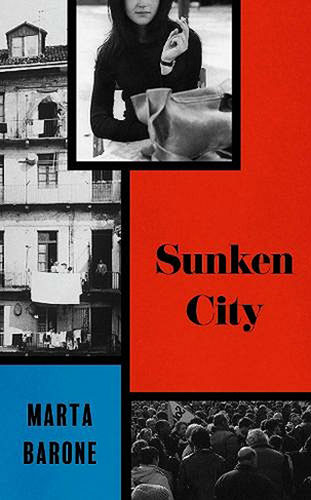
Sunken City, Marta Barone (Serpent’s Tail)
The narrator of this book, living alone in Turin, is trying to find out about her father and his involvement with radical political groups during the long 1970s, the ‘Years of Lead’, in Italy. It was a time of liberation and countercultural ambition, a time of utopian idealism – free schools, food banks, trade unions – that turned sour and militant, spawning strikes, poverty and armed terrorist attacks or revenge executions and maimings. How did L.B., her long-absent and now deceased father, fit into all this? She wants to know.
So she contacts her father’s relatives, colleagues and friends, and scours magazine and newspaper archives for stories, mentions and facts. She slowly assembles a narrative, a timeline that is often out of sequence and sometimes contradictory, a web of information and misinformation, an anthology of courage and foolishness, ambition, love and stubbornness, of politics, violence and disinformation.
She also, of course, revisits her own past, the childhood memories she has of being with her father. She analyses her own feelings, both as a child back then and as an adult now. By questioning her father’s actions, she questions herself about idealism and politics, trying to distance herself from the guns and bombs later on in the story, even as she finds out more about them. She finds unexpected emotional connections, surprising violence and stupidity, as well as numb, aging rebels who are mostly try to forget their youthful rebellion.
Even though L.B. turns out to have not been part of the violence, only acting as a doctor when contacted by injured revolutionaries, he was wrongly arrested, put on trial and imprisoned, but seems implicitly involved. There is never a suggestion of him being a saint or above it all, although one character towards the end of the book offers a summary which is also a kind of obituary and a validation:
‘Leonardo lived the life he wanted to. He was always where he wanted to be, all things considered. He carried on practicing democracy when no one gave a fig about being democratic any more, when no one gave a fig about anything at all. It was a life cut short, in a certain sense, unfinished. But it was what the English call “a decent life”.’
It’s unclear if L.B. did have a decent life, and it’s perhaps less clear what the narrator makes of all her research. She rejects the idea that she is finding herself through her father, yet this is more than a fictional account of true-life events, it is a psychological exploration of what actually happened in Italy, and a rare window into what creates violence and revenge out of revolutionary idealism and ambition, truth out of fiction, journalism and recent history.
This is a wonderful book that breathes life into Italian counterculture as the 60s and 70s and their revolutionary optimism and fervour slip away from us. Barone’s book deserves a place on your shelf alongside Hari Kunzru’s My Revolutions, Alan Burns’ The Angry Brigade, and Alun Rowlands’ Communiqués as astute and perceptive fictions about revolutionary zeal, political fervour, violence, and emotional damage.
Rupert Loydell
